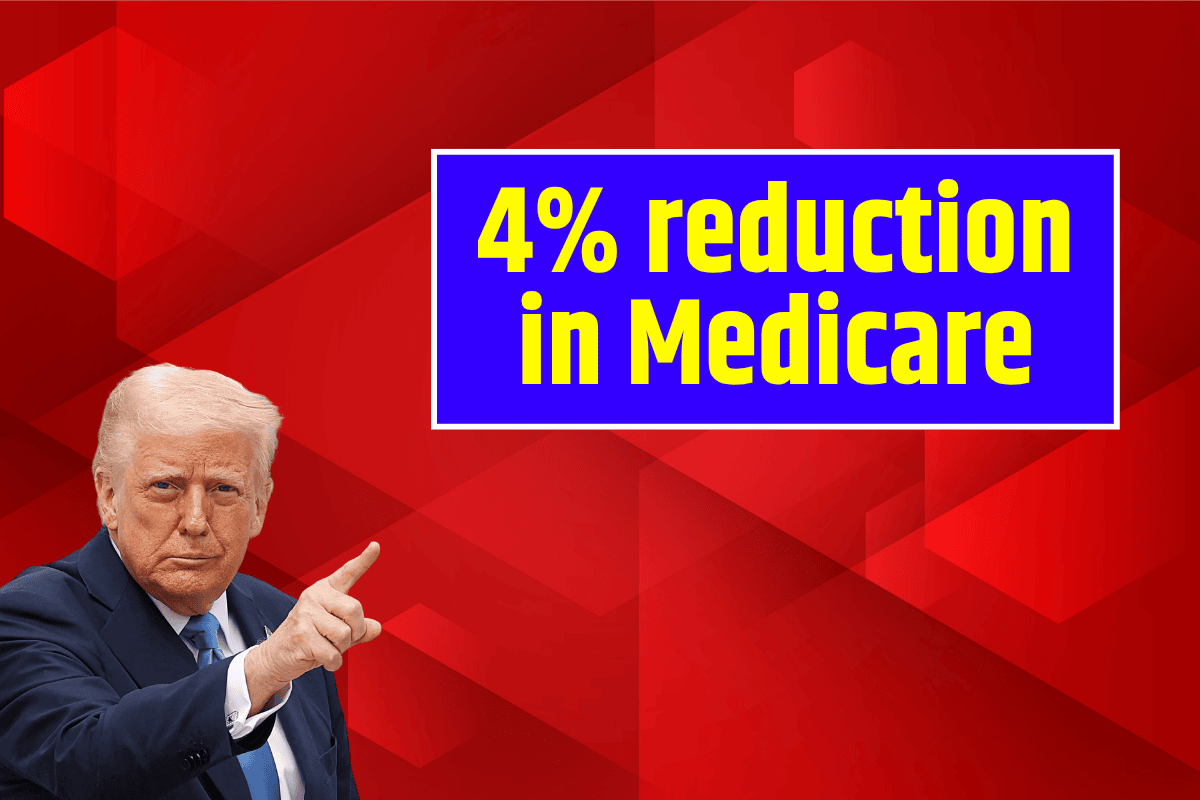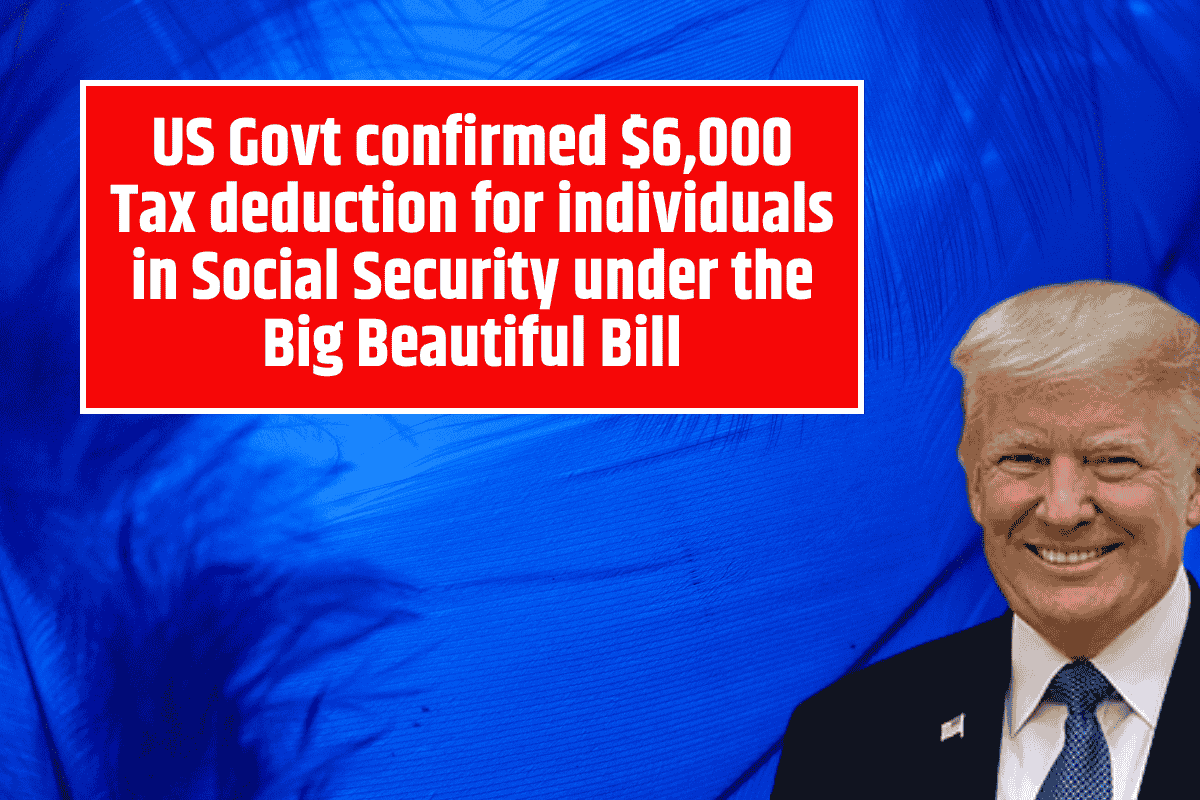The ongoing legislative debate over the massive “One Big Beautiful Bill” is stirring significant changes for Medicare recipients and future retirees.
As both the U.S. Senate and House move forward with their versions of the bill, Medicare is facing some big changes that could affect millions of Americans who rely on the program.
While some provisions aim to increase savings flexibility, others come with the risk of cuts to Medicare funding.
In this article, we’ll explore the key changes proposed in both versions of the bill, from Health Savings Accounts (HSAs) to fraud prevention and eligibility changes, and the potential consequences for Medicare and its beneficiaries.
Medicare Funding Cuts Loom
One of the biggest concerns surrounding the “One Big Beautiful Bill” is the automatic funding cuts that could impact Medicare.
The bill’s budget caps, due to its size, would trigger a 4% reduction in Medicare funding, which translates to an estimated $500 billion in cuts over the next eight years, starting in 2026.
While Social Security is exempt from these cuts, Medicare, which is already financially strained, is not. This presents a looming threat for the 68.6 million Americans who rely on Medicare for their health care, as well as the millions of future retirees.
Health Savings Accounts (HSAs) and Contribution Flexibility
The House version of the bill includes a proposal that could benefit seniors with high-deductible health plans (HDHPs). Currently, seniors who are enrolled in Medicare Part A cannot contribute to a Health Savings Account (HSA), even if they are still working and covered by an HDHP.
This restriction exists because once people claim Social Security, they are automatically enrolled in Medicare, making it difficult to opt out of Part A.
Under the House bill, this restriction would be lifted, allowing working seniors eligible for Part A and covered by an HDHP to contribute to an HSA. Additionally, the House bill proposes raising HSA contribution limits for lower-income households.
For individuals earning less than $75,000, an extra $4,300 would be allowed in HSA contributions, while families earning under $150,000 could contribute an additional $8,550. These thresholds would be indexed for inflation and phased out for individuals earning $100,000 or more and families earning $200,000 and up.
Rural Health Care and Emergency Hospitals
Rural health care is another area where the bills differ. Under current law, only hospitals that were operating and enrolled in Medicare by December 2020 are eligible to convert to Rural Emergency Hospital (REH) status, which helps facilities in sparsely populated areas stay operational.
The House version of the bill seeks to expand this eligibility window back to January 2014, allowing now-closed hospitals the opportunity to reopen under the REH designation. The Senate version does not include this provision, further highlighting the divide between the two chambers.
Artificial Intelligence and Fraud Prevention
The House bill also proposes using artificial intelligence (AI) to combat Medicare fraud. A $25 million allocation would go toward hiring AI contractors and data scientists to track waste and fraud in Medicare, with regular updates provided to Congress.
This provision could help modernize fraud prevention efforts, making the program more efficient. However, the Senate bill omits this entirely, opting instead to stick with the current audit processes managed by the Centers for Medicare and Medicaid Services (CMS).
Changes to Medicare Eligibility
Medicare eligibility is another area where the bills differ, especially with regard to immigration. Under current law, undocumented immigrants are not eligible for Medicare benefits, and the House bill seeks to make this restriction even more explicit.
The bill tightens eligibility, stating that only lawful permanent residents, certain Cuban immigrants, and individuals covered under Compacts of Free Association would be eligible for Medicare benefits.
The Senate version echoes much of the House language but includes an additional provision for certain Haitian immigrants. This language was added to include individuals from Haiti as eligible for Medicare under the same rules as Cubans defined in Section 501(e) of the Refugee Education Assistance Act of 1980.
In a notable development, the Senate bill mandates that individuals currently receiving Medicare who no longer meet these eligibility requirements would lose their benefits within 18 months of the bill’s enactment. This provision could have a significant impact on individuals whose status changes under the new eligibility rules.
The debate over the “One Big Beautiful Bill” is a pivotal moment for Medicare, with the potential for significant changes to both the funding and eligibility requirements of the program.
While the House version introduces more flexibility for seniors with HSAs and seeks to address rural health care needs, the Senate’s version is more focused on limiting eligibility and maintaining current fraud prevention measures.
The looming funding cuts and the potential loss of benefits for some Medicare recipients highlight the risks involved in these proposed changes.
As Congress continues to move forward with the bill, seniors and future retirees will need to stay informed about how these legislative changes might affect their health care and financial security.
FAQs
How does the ‘One Big Beautiful Bill’ affect Medicare funding?
The bill proposes automatic funding cuts to Medicare, which could reduce its funding by 4%, resulting in an estimated $500 billion in cuts over the next eight years starting in 2026. This poses a significant risk to Medicare beneficiaries.
What changes does the House version of the bill propose for Health Savings Accounts (HSAs)?
The House version of the bill proposes allowing seniors who are eligible for Medicare Part A and have high-deductible health plans (HDHPs) to contribute to Health Savings Accounts (HSAs). Additionally, it suggests raising contribution limits for lower-income households.
Will there be changes to Medicare eligibility for immigrants?
Yes, the House bill tightens eligibility, stating that only lawful permanent residents and specific immigrant groups, like certain Cuban immigrants, would qualify for Medicare. The Senate bill includes similar provisions but adds eligibility for some Haitian immigrants.












